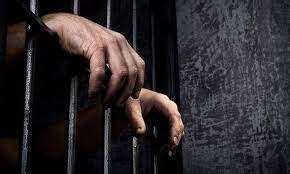On August 15, the National Commission for Justice and Peace (NCJP), a Catholic Church body, released a devastating study titled “Hope Behind Bars.” Its findings uncover a grim reality: Pakistan’s prisons are not merely places of confinement, but sites of deep-rooted prejudice where minority inmates — particularly Christians, Hindus, and Sikhs — are treated as second-class humans.
The study, conducted across 128 prisons in Punjab, Khyber Pakhtunkhwa, Sindh, Balochistan, Pakistan-administered Kashmir, and Gilgit-Baltistan between May 2023 and March 2025, reveals systemic abuse, denial of rights, and open discrimination that often turns incarceration into a nightmare.
“Untouchables” Behind Bars
The report shows that once their religious identity is known, minority prisoners are degraded and dehumanized. They are labeled “untouchables,” assigned menial jobs like cleaning toilets, and deprived of basic provisions that Muslim inmates routinely receive.
Prison officials often refuse them remission of sentences — benefits such as reduced jail terms that Muslims earn for memorizing the Quran or observing Ramadan. Between 2022 and 2025 alone, nearly 2,000 Muslim prisoners in Punjab and Khyber Pakhtunkhwa received such remissions, while not a single Christian, Hindu, or Sikh was granted equivalent rights despite provisions under law.
The discrimination is not a matter of policy oversight but of deliberate neglect. Federal and provincial governments have failed to approve curricula for the Bible, the Geeta, or the Guru Granth Sahib, effectively blocking minorities from accessing educational and religious-based remissions guaranteed by law.
Voices From Inside
Perhaps the most harrowing accounts come from those who have lived through this ordeal.
Zakria John, one of nearly 100 Christians imprisoned after the 2015 Youhanabad church bombings, recalls the inhumanity of his detention:
“We were forced to drink water from
lotavessels used in toilets. One person would open their mouth while another poured water from the same filthy pot.”
For three months, their whereabouts were hidden. Their cell, previously a tuberculosis ward, still carried discarded syringes. Soap was a luxury, smuggled in scraps by sympathetic workers who risked punishment if caught.
“We had six plates for 100 men. We took turns eating. After using the toilet, we rubbed our hands on the walls to clean them. Blankets, soap, even necessities — all systematically denied,” John said.
Even when families were finally allowed visits, bringing essentials like plates and soap, prisoners were haunted by the knowledge that these were items the administration was already obliged to provide — but intentionally withheld.
The Numbers Behind the Suffering
- As of March 2025, 1,588 minority prisoners were confined in Punjab’s correctional facilities — 1,315 under trial, 232 convicted, and 41 facing death sentences (34 unconfirmed, 7 confirmed).
- In Sindh, out of nearly 20,000 inmates, only 133 were from religious minorities.
- In Khyber Pakhtunkhwa, just 27 minorities — 25 Christians and 2 Hindus — languished in jail.
Though numerically small compared to the total prison population, these prisoners bear a disproportionate weight of abuse, neglect, and psychological trauma.
A Call for Justice
The NCJP’s recommendations are clear and urgent:
- End religious discrimination in remission policies.
- Ensure equal access to education and religious study for all inmates.
- Provide mental health services, especially for those on death row.
- Establish confidential complaint systems to report abuse.
- Allow civil society groups to monitor prisons and educate inmates about their rights.
Without these reforms, the suffering will continue in silence, hidden behind high prison walls.
Behind Bars, But Not Beyond Hope
Pakistan’s prisons are meant to serve justice, but for its minority prisoners, they have become chambers of humiliation. The NCJP’s report forces the nation to confront a hard truth: justice in Pakistan is not blind — it sees religion first.
In the testimonies of prisoners like Zakria John, one finds not only pain, but also a quiet defiance. The refusal to surrender dignity, even when stripped of everything, is itself an act of resistance.
The title of the report, “Hope Behind Bars,” is not an exaggeration. For Pakistan’s minorities, hope is the only thing the system has not yet managed to take away.
